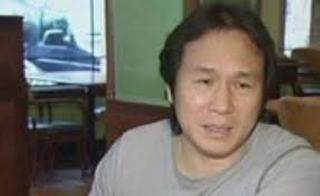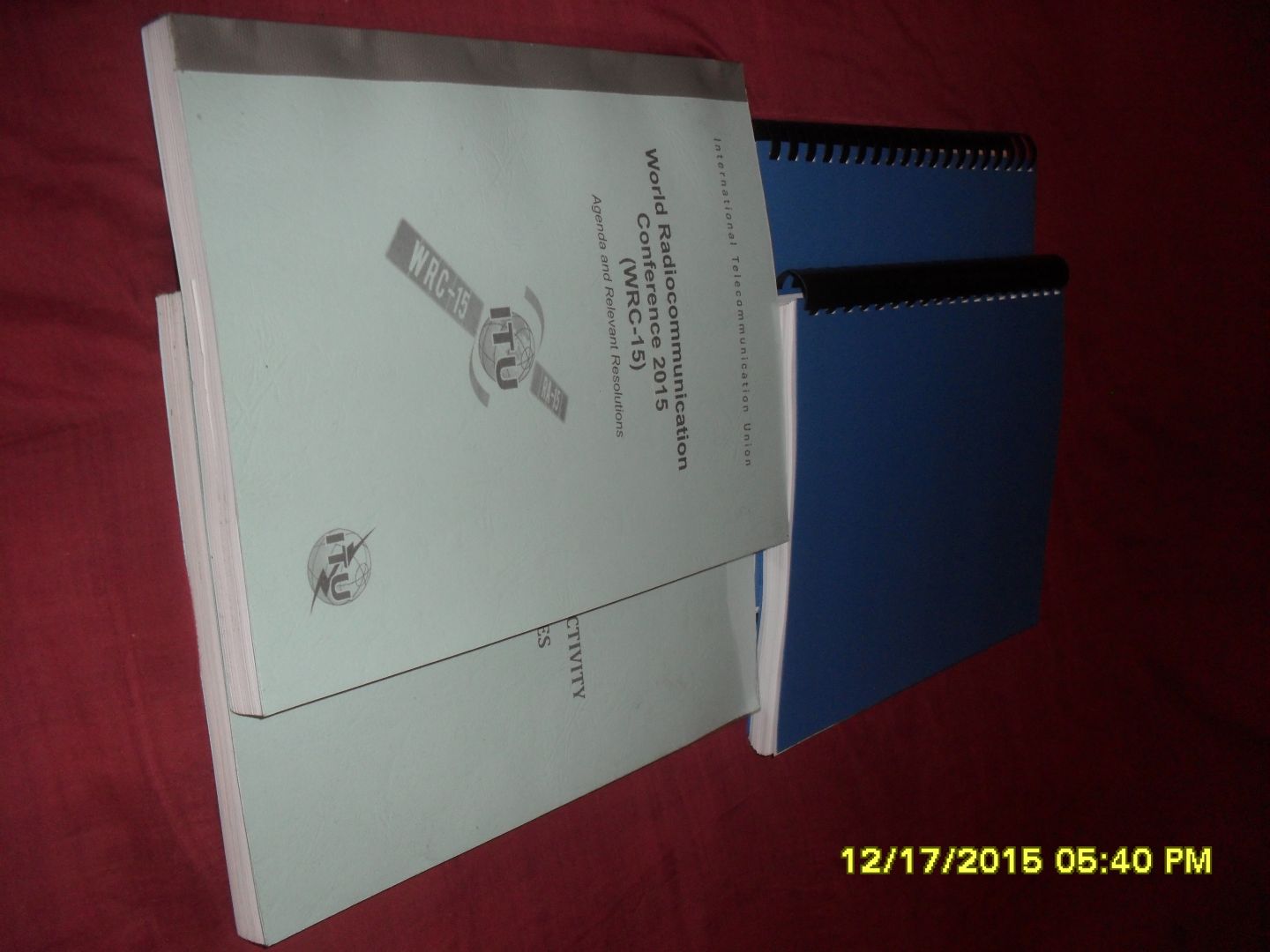RCBC Fires Dequito
Unscrupulous officials and private individuals have been milking the heritage accounts by conning the holders and signatories of those accounts and enriching themselves by forging the signatures and misrepresenting those real holders and signatories.
What the RCBC scandal is not revealing to the public are details that everyone needs and deserves to know.
Atong Ang held court at Malacanang and the Department of Transportation and Communications (DOTC) as if he was the chairman of the board and that the Office of the President and the DOTC were his empires. The guy is full of shit and yet he was allowed to lord it over government the way he did during Erap’s incumbency. WTF. Ang is now reported by media to be sponsoring a female presidential candidate whose survey ratings have soared into the sky after announcing a fake Supreme Court “decision.”
This is the earlier article about the issue published online:
The Senate Investigation into the stealing of United States Dollars Eighty One Million (US$81,000,000) appears to be useless. They have not been able to unearth the true and real facts about how the stealing of the money actually took place. And where the money is now.
POOR INTERNET CONNECTIVITY IN THE PHILIPPINES
A REVIEW OF EXISTING LITERATURE
A technical paper that embarks upon the actual objectives of the State for the benefit of stakeholders and users of Internet Services in the Philippines will shed light on the existing and future aspects of the service.
Such a paper shall make apparent all the reasons and basis for explaining the current state of Internet in the Philippines.
As the situation stands, Internet service in the country today is miserably slow and yet it counts as being among the most expensive all over the world. Why did such a situation come into being? How were investments and revenues of the licensed providers used to allow this to happen? What factors helped cause the snail paced speed of Internet in spite of exorbitant earnings amassed by providers from helpless subscribers? In the face of such wretched conditions is the Philippine Government simply going to stay immobile and inutile and not lift a hand to correct the problem?
A huge volume of literature abound on the problem of very slow Internet in the Philippines and the attendant malady of extremely high prices for Internet subscription. Most of the existing material about the causes of poor Internet Connectivity relate to technical concerns. Some of the current literature are ZTE [2014]; Huawei [2015]; Alcatel-Lucent [2015]; Ericsson [2015]; Nokia Solutions and Networks [2013]; Anritsu [2015]; Motorola [2008], among many others.
These technical literature taken against the backdrop of Philippine providers of mobility and Internet service give the best rationale and causalities that show how and why Internet connectivity in the country is deplorably sluggish and will never improve in the many years to come.
Some literature however, written poorly and pretend to provide non evidence-based arguments about why Internet is so slow in the Philippines portray the wrong side of the picture and mislead the intelligentsia as well as the public in general.
Such entities ranging from institutions such as Ookla [2015], Akamai [2015], to TelecomAsia [2015-16], the international agencies in and outside of Manila [2016], among too many others, should be guilty of purveying literary material that do not help the concerned audiences understand why Internet is too decrepit and execrable – and especially why only in the Philippines.
These institutions have been putting out as many waste material into the ecosystem that blur the public’s understanding and cloud the entire issue about why Internet is never improving in the Philippines when all the means and methodologies are there to cure the problem.
On one hand, the great number of publications that show how lethargic and almost on the verge of dying the speed of Internet in the country is, are the very same literature that provide the correct solutions to increasing the speed of the Internet based on the results of scientific research, perfected models and technologies, reliable evidence and experience.
On the other hand, voluminous literature pertaining to governing rules, regulations, standards and international covenants, agreements, resolutions that need to be followed to arrest the acute malady are not propagated in the public milieu. These literature, being steeped in legalese are treated with disfavor by selected quarters that benefit from the current situation and prohibit the same from being disseminated. Productivity Commission International Telecommunications Union [2002]; US Federal Government Council of Economic Advisers [2015]; Republic of the Philippines Congress [2014]; Commonwealth Broadcasting Association [2008]; United Nations Office on Drugs and Crime [2013]; European Commission [2012]; World Bank [2009]; International Telecommunications Union, World Radiocommunications Conference 2015 (WRC15) [2015]; Asia Pacific Telecommunity [2012]; to name but a few.
Even Philippine Media is just as culpable for swallowing the conventional wisdom about the causes of poor Internet connectivity in the country hook, line and sinker. As sure as the sun rises each morning, some members of the Media are clearly guilty for taking rewards and incentives to keep the public ignorant about what causes slow Internet in the country and why domestic and international laws, rules and regulations, covenants, standards and best practices are not being followed in the Philippines.
It must be stressed here, that such non-compliance of rules, covenants, agreements and resolutions, forms nearly ninety percent (90%) of the raison d’ etre as to why Internet is too slow in the Philippines. And yet, none of the current make-believe literature falsely claiming to be intelligent studies about the slow and costly Internet services in the country actually pay respect to the fact that the Philippines is not compliant with the existing rules, regulations, standards, covenants, resolutions on Radiocommunications as promulgated at the level of bodies such as the Asia Pacific Telecommunity (APT), International Telecommunications Union (ITU) and many other similar telecom governing bodies.
This is where the problem really lies and this technical paper proceeds to report on the exceedingly dire consequences of the Philippines defiance of laws, regulations, international covenants, resolutions, agreements pertaining to proper behavior in the telecom sector.
From out of this severe, highly insubordinate posture of the Philippines, arises a myriad of problems that are the very cause of:
- poor Internet connectivity
- dropped calls in the middle of conversations over mobile telephone
- frequent inability to call by mobile phone
- delayed SMS messages (texts)
- recurring problem of signal interruption in television broadcasts; and,
- many other mobility and Internet problems
Because of the public’s inherent and sacred right to information, this technical paper was written precisely to spread awareness of what goes on behind the perceived Philippine telecom industry that at present is distortedly depicted to the public.
The authors anticipate a better understanding of why Internet service in the Philippines is excruciatingly slow and yet only those that can afford, are able to pay the high cost of having decent Internet connections in their homes or places of business.
In the face of the inevitable coming of the phenomenon of “Internet of Things (IoT)” all those that are concerned should act now and not sit on the fence only to regret our undoings later.
The International Center for Strategic Communications Studies
ICSCOMS
The International Center for Strategic Communications Studies – ICSCOMS is a colloquium of experts in a variety of fields that deal with strategic and other concerns in the different areas of Communications.
Communications is a pervasive aspect of human endeavor. It is a global necessity and holds an important niche in the lives of people, families, groups of individuals, corporate organizations and entire nations.
Objectives
To conduct studies, research and development in the area of communications.
Establish a communications research laboratory that will invite and accommodate as many experts and specialists in various fields to undertake tests, trials, experiments, design and development, in communications.
Deliver results of studies, research and designs and proto-types in selected instances to specific recipients as well as in most part, to the people all around the planet.
To contribute to the goal of bringing communications to peoples all over the world.

The Organization
View original post 48 more words
Study on Why Internet is Slow in the Philippines
Watch out for the book version of why the internet is slow in the Philippines. We will announce the publication of the technical report and its availability for everyone.
Merry Christmas all, be patient with your slow internet now. Fast internet speed is coming very, very soon to your computers, devices and mobile phones!!!
Slow Internet in the Philippines
Little do the current crop of Philippine stakeholders know that any scarce resource in the telecommunications industry, to inlcude every single one of the specific bandwidths of the various Spectrum of our Radio Frequencies, are only allocated by the International Telecommunications Union (ITU).
Some quarters believe that owning the entire breadth of one whole Spectrum, whether one is able or unable to pay the Spectrum Usage Fee (SUF) to the government, is legal and just okay.
It is not legal and it is not okay. It is immoral and an abomination. The International Telecommunications Union (ITU), the Asian Pacific Telecommunity (APT) will not stand for this. This has got to change.
The ITU recently held its 2015 Conference in Geneva, Switzerland and declared as follows:
“WRC‐15 will provide more bandwidth for mobile– broadband
“Governments worldwide are making available more– spectrum – in line with national broadband planning and desired long term investment in ICT.
“More countries commit towards the uptake of Digital–Dividend band plans and other globally harmonized bands (1800 MHz, 2600 MHz)”
In the next few months, Internet in the Philippines will radically change and not because of above named anomalous practice, but honest-to-goodness adoption of new technology and new business models.
Study on Why Internet is Slow in the Philippines — Resource Recovery Movement
Originally posted on Cyberpark Group: Watch out for the book version of why the internet is slow in the Philippines. We will announce the publication of the technical report and its availability for everyone. Merry Christmas all, be patient with your slow internet now. Fast internet speed is coming very, very soon to your computers, devices…
via Study on Why Internet is Slow in the Philippines — Resource Recovery Movement
Study on Why Internet is Slow in the Philippines — Resource Recovery Movement
Originally posted on Cyberpark Group: Watch out for the book version of why the internet is slow in the Philippines. We will announce the publication of the technical report and its availability for everyone. Merry Christmas all, be patient with your slow internet now. Fast internet speed is coming very, very soon to your computers, devices…
via Study on Why Internet is Slow in the Philippines — Resource Recovery Movement
Slow Internet in the Philippines — Resource Recovery Movement
Originally posted on Cyberpark Group: Little do the current crop of Philippine stakeholders know that any scarce resource in the telecommunications industry, to inlcude every single one of the specific bandwidths of the various Spectrum of our Radio Frequencies, are only allocated by the International Telecommunications Union (ITU). Some quarters believe that owning the entire…
via Slow Internet in the Philippines — Resource Recovery Movement
Crying, laughing in Malacañang by critically ill patient
View original post 318 more words
Idiot Noynoy Akinu Lover Makes Mockery of Inaugural Speech of President
Originally posted in Tathagatha blog
On June 30, 2016, 9:55 am Mr. Alexander Parel, Customer Care Manager at Jobstreet.com, fervid lover, beneficiary and rabid dog of Nonoy Akinu, the poseur-fake presidentita of the cursed Akinu Regime, head of the narco-political party the Liberal Party, claims to be the first to get a copy of and show to the public the draft of the Inaugural Speech of His Excellency Rodrigo Roa Duterte, President of the Philippines.
Mr. Alexander Parel uses the license of such devious idiots unabashedly promoting the Liberal Party – the Philippines’ biggest narcopolitical and largest kleptomaniac syndicated organization agenda like Maritess Vitug, Solita Monsod, the ABS CBN, Pera Ppler (rappler.com), Philippine Daily Inquirer, among others, to destroy the present administration to ensure that the shadow government-in-waiting technically having a “President-in-reserve” Cong. Leonor Robredo, will once more come to power. Parel has this to give us about the…
View original post 2,914 more words
Nonoy Libanan announces political comeback
By Hannibal Alde, Pulitika Estehanon Tribune, June 10, 2015
Nonoy Libanan who is arguably the most powerful political figure in Eastern Samar has announced his political comeback. A political insider said that Libanan is eyeing the gubernatorial seat and is planning a team-up with Annaliza Gonzales-Kwan.
Gonzales-Kwan, on the other hand, has expressed plans to once again run for Congress this coming May 2016 elections.
The former Commissioner of the Bureau of Immigration is expected to present his vast experience in governance, among others, as an advantage against his political rivals. Before landing as the head of the said Bureau, Libanan served as Eastern Samar Senior Board Member from 1988 to 1992 when he was only 24. He then became Vice-Governor from 1992 to 1995. At an early age of 35, he served as Eastern Samar’s Representative in the 11th Congress from 1998 to 2001. He remained in that office…
View original post 223 more words
















